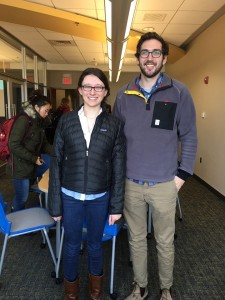Shaker Heights, my hometown, is a suburb of Cleveland, Ohio. It is also one of very few naturally integrated suburbs in America. This means that the school district was integrated, not by mandated busing, but through a grassroots organizing initiative started by the residents. The town continues to be committed to racial and class integration and high quality schools.
Shaker is also the home to many of the Cleveland Clinic, University Hospitals and MetroHealth healthcare providers. As a result, inequality and healthcare were subjects of lunch table conversations throughout high school.
I left Shaker for Wesleyan University in 2008. During my time at Wesleyan I became interested in research on healthcare issues in under-served communities. Most of my research at Wesleyan and since graduating has focused on veterans but I also worked to examine the role of race in healthcare disparities in the Department of Veterans Affairs.
Race and inequality were common threads that ran through my work experiences after leaving home. My time in Shaker inspired both my decision to go back to school to attend the Tufts Postbac and my desire to provide healthcare to under-served urban communities—maybe even back home in Cleveland.
Eli, a fellow Shaker alum, also attended the Tufts Postbac a year before I did. In a small program it was so great to find another Shaker alum, eight years after leaving home! For Eli, Shaker was also important in his decision to go back to medical school and in his commitment to serving under-served populations. Here is what Eli had to say to me about Shaker:
Shaker Heights (or “Shaker” as it’s affectionately referred to) is a community of multitudes. From its early racial integration initiatives, to its renowned public school education with classes and extracurriculars that gave voices to marginalized groups, to its proximity to the city of Cleveland which has for a while walked the line between prosperity and poverty. The Shaker I grew up in embraced the need for responsible citizenship in a world of heterogeneity. How could I not use my medical career for treating the under-served growing up in a community like that?
Although I don’t want to call the suburbs my home (Shaker is a textbook suburb after all), I’ve found my calling to become a doctor in rural communities which are disproportionately plagued by poor health education and limited access to health care providers. Growing up in Shaker Heights planted that seed of serving others that guide me in my pursuit of medicine, and I’m sure guide countless others no matter what their calling is.

Leave a Reply